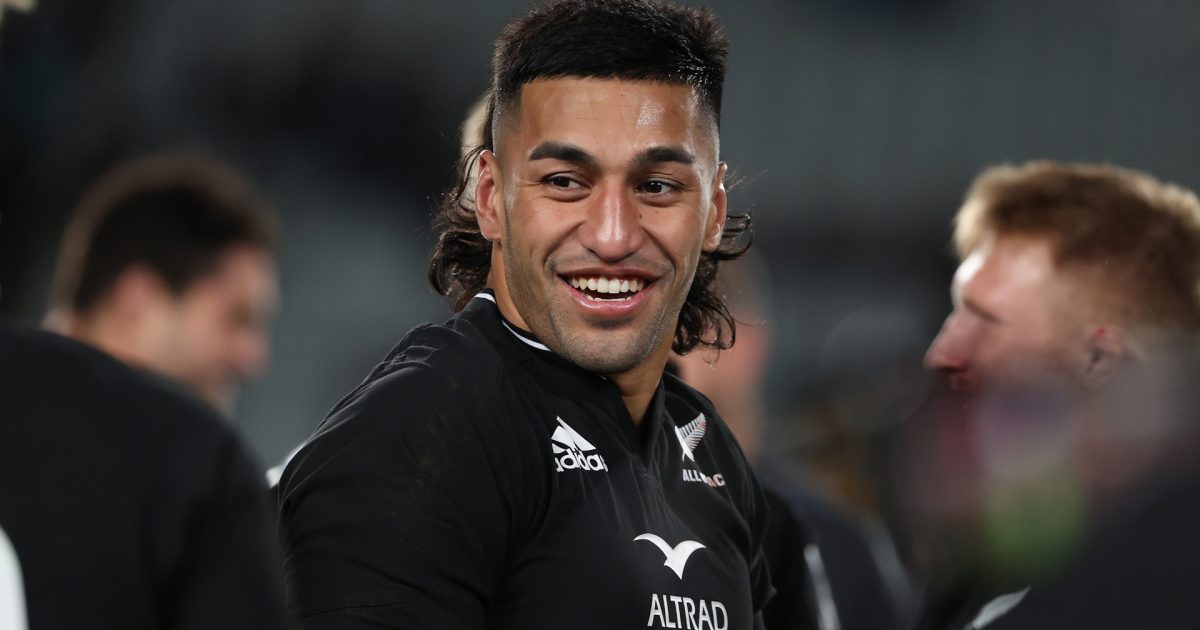'We can't keep everybody': NZR preparing for financial battle after Rieko Ioane coup

New Zealand Rugby have been boosted by the re-signing of star Blues centre Rieko Ioane on a bumper four-year commitment but they are keeping expectations in check as the battle to retain talent continues.
Ioane was one of many star players coming off-contract after 2023 and is just the second player behind Chiefs hooker Samisoni Taukei’aho to announce a deal through to the next World Cup in 2027.
New Zealand Rugby has also announced the retention of Scott and Jordie Barrett, Tyrel Lomax, Codie Taylor, Sam Cane, Ardie Savea, Dalton Papali’i, but other key players such as Will Jordan, Damian McKenzie are yet to announce what they will do.
NZ Rugby general manager of professional rugby Chris Lendrum conceded that they ‘can’t keep everybody’ as they contend with a competitive landscape that now includes cash-rich Japanese clubs.
“We’ve got enough money to have a really fair crack at keeping all of the most significant players,” Lendrum told Sky Sport NZ’s The Breakdown.
“We can’t keep everybody, that’s been the case for a number of years now and will probably remain the case.
“We’re not the top of the market, financially. In Japan and France, the clubs and corporations in those competitions have a significant amount of money to throw around for our best players and sometimes our up-and-coming players.
“We can’t keep them all, but the lure of the All Black jersey is still really strong for players.”
The carrot for New Zealand-based players has always been the black jersey which continues to be a key retention tool.
Overseas-based players are not eligible to represent the All Blacks and that will remain in place, meaning players such as Richie Mo’unga and Shannon Frizell will end their international careers when they head to Japan next year.
Lendrum added that in some cases NZR’s offers can be significantly less than what is on the table for the top players which is why the pull of the All Blacks is so vital.
“There’s generally a financial gap,” he added. “For those elite players, it’s probably 10-30 percent.
“It’s not immaterial, but when you combine the value that we can offer, which for the senior players and elite All Blacks, it’s a great wage by any standard in New Zealand terms.
“The ability to play for the All Blacks on top of that, that’s a pretty special package. That’s why you’re seeing all these players committing again.”
It had been reported last year that NZR was considering a tweak to the rules to allow departing first five-eighth Beauden Barrett to continue to represent the All Blacks despite being signed to Toyota Verblitz, but that was quickly shot down.
Rugby Australia continues to tinker with the Giteau Law which has seen the goal posts keep moving away from the original benchmark of 60-cap Wallabies.
Changes to overseas eligibility are a ‘last resort’ for New Zealand Rugby according to Lendrum.
“You move too quickly in this space at your peril,” he said.
“Absolutely, that’s something we might consider in the future, but sitting where I do, it’s probably a last resort for us.
“Maybe one day, that’s our future, but I’m not in a hurry to get to that future.”




























Wheres all the silverlake money gone to???? So much noise yet seemed like the barrel was empty...with the amount of talent coming through, RI should have been let go
The SL money is for long term investment, not short term fixes. Remember, they get a percentage of our income so we can't spend more until increases in revenue exceed that percentage.